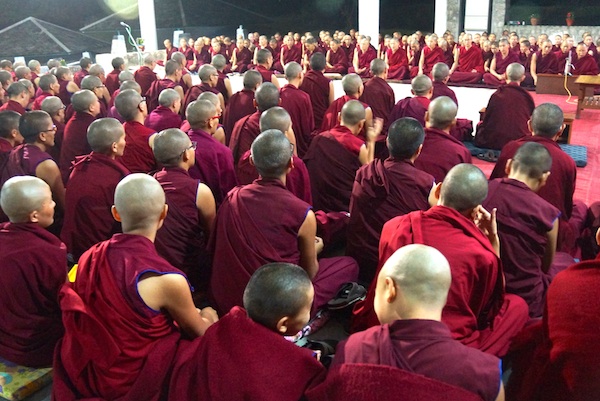The annual Jang Gonchoe, the inter-nunnery debate session held in October, brings together hundreds of nuns from different nunneries for an important educational opportunity that was once only open to monks.
This debate session plays a great role in sharpening the nuns’ minds and preparing them for higher examinations, such as the Geshema exams, as they share their knowledge and debating skills among themselves.
This opportunity wasn’t always available to nuns. The first inter-nunnery debate session was held on September 20, 1995 in Dharamsala, India. This milestone for Tibetan Buddhist nuns was modeled on the Jang Gonchoe debate sessions of the great monastic institutions of Tibet. It was organized by the Department of Religion and Culture and was attended by nuns from 4 nunneries in India — Jangchup Choeling, Jamyang Choeling, Geden Choeling, and Dolma Ling.
Next year, 2015, marks the 20th anniversary of the Jang Gonchoe for nuns. Throughout these decades, His Holiness the Dalai Lama has been an incredible voice in support of the nuns.
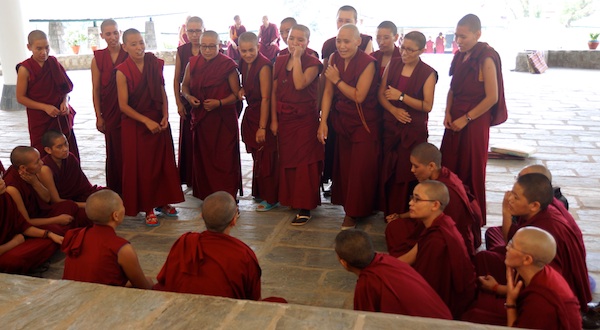
A group of Tibetan Buddhist nuns debate in October 2014 at the 19th annual Jang Gonchoe inter-nunnery debate.
The Jang Gonchoe takes place under the auspices of the Department of Religion and Culture of the Central Tibetan Administration in Dharamsala. Since 1997 the Tibetan Nuns Project has taken responsibility for raising the funds for this event through major gifts and individual scholarship gifts from donors.
Our profound thanks go to Ani la in France whose groundbreaking gift of $35,000 launched our new Jang Gonchoe Endowment Fund this spring. We would like to extend our deepest thanks to our other endowment donors to date: Norman, Donald, Gus, Dina, Phyllis, Cindy, Christopher and the Conoco Phillips Matching Fund.
It is our wish to fully fund the Jang Gonchoe Endowment (a $300,000 goal) so that this event can be maintained in perpetuity.
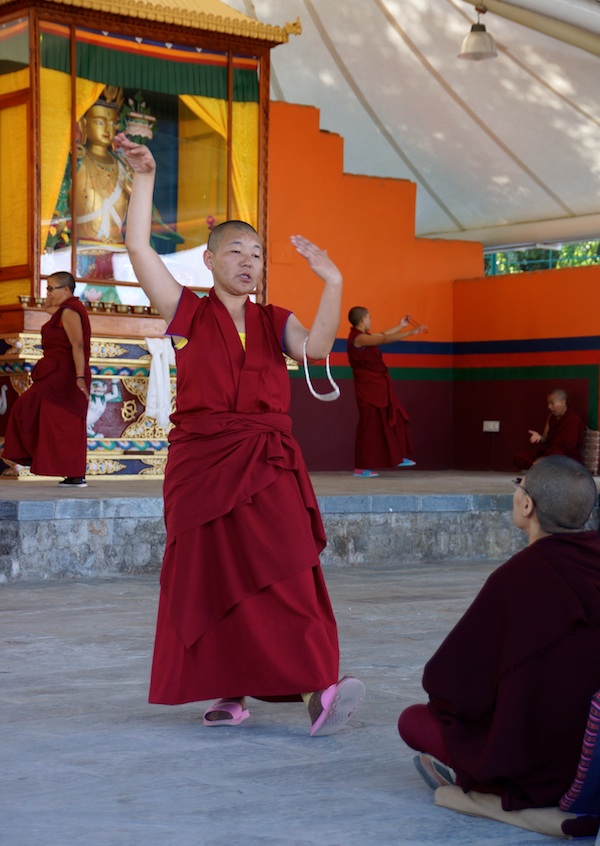
The annual Jang Gonchoe debate event, funded by major donors and scholarship donors, provides a vital educational opportunity to Tibetan Buddhist nuns in India.
Until the Jang Gonchoe Endowment is fully funded, each year the Jang Gonchoe would not be possible without the wonderful support of our scholarship donors. We are extremely grateful to our donors who have offered full or partial $100 scholarships, or in many cases multiple scholarships. These generous gifts allow the nuns to attend the debates and provide food, shelter, and transportation costs for the nuns.
We’d like to thank the following people for their generous and compassionate scholarship gifts: the Schwab Charitable Fund, Chris, Ted, Tammy, Carolyn (Sunny), Sandra, David, Donald, Timothy, Pamela, Leah, West, Jia Heng, Shanti, Radha, Tina, Namkha, Jay, Karen, Susan, Cindy, Sara, Randall, Twilah, Jesse, Gregory, Michael, Susan, Betty, James, Kay, Jason, Nancy, Jean, Elizabeth, Carol, Charles, Lucie, Holly, Monica, Navi, Laura, David, Melody, Kirk, Kate, Nicolas, Carol, Bernice, Cheryl, Jan, Charlotte, Nina, Nancy, Sharon, Victoria, Monica, Yvonne, Melissa, Cynthia and Yamah.
Finally, we want to say thank you to Mr. Kalsang P. Chokteng, a Swiss Tibetan donor who we wrote about in our fall 2014 newsletter. His tireless efforts to fundraise for this year’s Jang Gonchoe raised US $7,800.
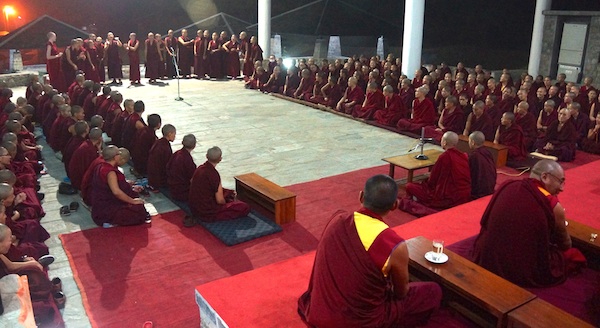
Nuns debate in front of their teachers at the 2014 Jang Gonchoe held in October at Dolma Ling Nunnery and Institute. September 20, 2015 will mark the 20th anniversary of the Jang Gonchoe for nuns.

This photo shows the nuns debating well into the night at the debate courtyard at Dolma Ling Nunnery and Institute. The new roof of the courtyard that was completed in 2013 allows the nuns to debate year-round and in all weather, including during the monsoon.
Through its all its work, the Tibetan Nuns Project is strengthening Tibetan culture — under great threat due to the occupation of Tibet — through empowering women. These women, who previously lacked equal access to education and, in Tibet, were denied the opportunity to freely and safely practice their faith, are both an integral part of the spiritual roots of the society and are teachers and leaders of the future.
The Tibetan Nuns Project believes that education is the key to empowerment. The Tibetan Nuns Project has created a ground-breaking education system aimed at both preserving Tibetan culture and equipping and empowering these women to live and become leaders in the modern world.
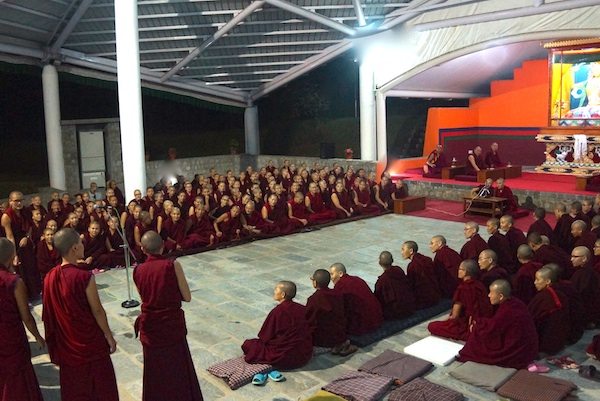
The Jang Gonchoe debate event is an important educational opportunity helping the nuns prepare for examinations and leadership roles. It is also a way to preserve the unique Tibetan culture and religion. Photo of nuns debating at night at the 2014 Jang Gonchoe.
The Tibetan Nuns Project believes that education is the key to empowerment. The practice of debate combines logical thinking with a deeper understanding of Buddhist philosophy and is an essential part of monastic education in the Tibetan tradition. Until the 1990s, Tibetan Buddhist nuns did not take part in this form and level of education and the Tibetan Nuns Project, with the support of the Department of Religion and Culture and the monastic establishments, has worked hard to open up this opportunity for the nuns and make debate a core part of their education. Establishing a comparable debate session for nuns has been an integral part of the nuns reaching the level of excellence in their studies that they have.
Our gratitude to everyone who has helped in these efforts.

